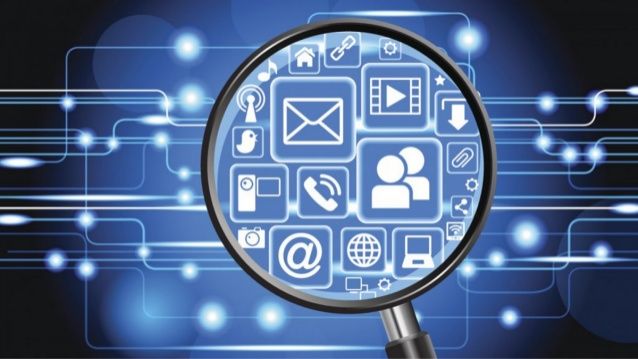Staying anonymous online sounds safe and exciting. While the internet holds great power, it is also known to be a dangerous tool used by cybercriminals. Have you ever thought about what actually happens when you surf the internet? Nowadays, many use VPNs or proxy servers that provide a high level of privacy.
Coming in all sorts of shapes and sizes, some proxies are hard to detect. Why? Keep on reading to find out.
What’s a proxy server?
A proxy server acts as a bridge between you and the internet, and it’s like an intermediary server that separates end users from the websites they browse. For instance, if you’re using a proxy to visit Google, at first, your request will be sent to the proxy server. Afterward, in turn, the actual request will be made to Google, and then the result will be returned back to you.
Many people like proxies because they provide a layer of security, serve you the functionality, and provide you with privacy. Despite that, if proxies forward the data received from the site to you, some question why not just go straight to the website without a proxy. Well, the answer is obvious – modern proxies are capable of much more than forwarding web requests.
How does a proxy operate?
Proxy servers also act as a firewall and a web filter that provides shared network connections. A good proxy server protects from all of the bad stuff that’s planted deep down the web.
Basically, a proxy is a computer with its own IP address on the internet. It’s similar to a street address. For example, just like the post office knows how to deliver your mail to your address, the internet also knows how to forward the information to the correct computer via the IP.
The anonymity from proxies comes from the ability to change your IP address, this way, making it hard for the web server to trace your exact location. Also, based on your IP address, proxy servers can block you from accessing certain web pages.
Proxy vs. VPN
At first glance, a proxy and a Virtual Private Network (VPN) service are very similar but there are some major differences. When you use a VPN, it establishes a secure connection between your PC and the internet.
VPNs can be enabled on various devices. For instance, once your computer is connected to a VPN, all internet traffic is sent over to that connection. The traffic from proxies can seem identical to VPN traffic.
Where does your IP come from?
An Internet Protocol – IP – address consists of different numbers that are separated by periods. Each digit can range from 0 to 255. IP addresses work similarly to any language and use guidelines for communication, enabling devices to exchange data using a protocol. In other words, computers speak the same language in any location.
IP addresses differ depending on your location. In general, IPs identify where you are in the world, sometimes even showing the street level. You can say that IP addresses expose what happens behind the scenes. Ultimately, your name is tied to your home address and your IP. If you want to get around this, using a proxy is the way to go.
You aren’t as safe as you think
Even though proxies are a hot item among internet users, some use them with bad intentions. The primary purpose behind proxies is to browse safely and anonymously on the internet. Now, this practice has shifted to the darker side, making cybercriminals one of the most popular proxy server clients.
Based on the functionality, proxies help block spyware, malware, and other viruses. We can think of proxies as a tool to bypass these filters, but in reality, they help filter out malicious websites. We already established that proxies provide anonymity but let’s not forget that fraudsters use them to protect their own identity so that they can conduct crimes without leaving a trace.
Proxies and fraudsters
Since it’s easier to commit fraud under an anonymity shield, hackers use proxy servers all the time in order to appear as different users. For instance, fraudsters use proxies to hide their true identity when making chargebacks and fraudulent purchases. This way, they aren’t detected, and the address on their payment method doesn’t match the IP’s location.
Now that you know more about proxies and how they are useful for fraudsters, it should make perfect sense to implement a proxy detection tool into your fraud detection kit. In general, a proxy isn’t a bad or a risky thing. Unfortunately, there are “bad” and “good” proxies.
Detecting proxies is important
Despite the challenge, detection of all types of proxies is possible. Analyzing proxies helps assess the risks and protects you and your business from fraud. According to iDenfy, proxies are used in 97% of cyber fraud cases. That’s why an anonymous IP address or a proxy can be the first sign of fraudulent intentions.
No matter if it is in user onboarding or transaction time, scanning the geolocation of your customer can prevent unwanted losses. Such an automated, real-time special detection tool prevents fraudsters from attacking enterprises.
By scanning multiple databases, including the Black Market, the software provides a summary analysis of risk associated with an IP address. Afterward, you can decide what you do with risky customers and whether to allow them to access your services.
To sum it up
Thanks to technology and artificial intelligence, catching fraudsters online is not a mission-impossible anymore. While proxies can be harmless, they can also come across as a red flag. For this reason, many businesses choose to use special automated tools to prevent fraud as well as cybercriminals from using proxies as a way to stay anonymous and commit serious crimes.
